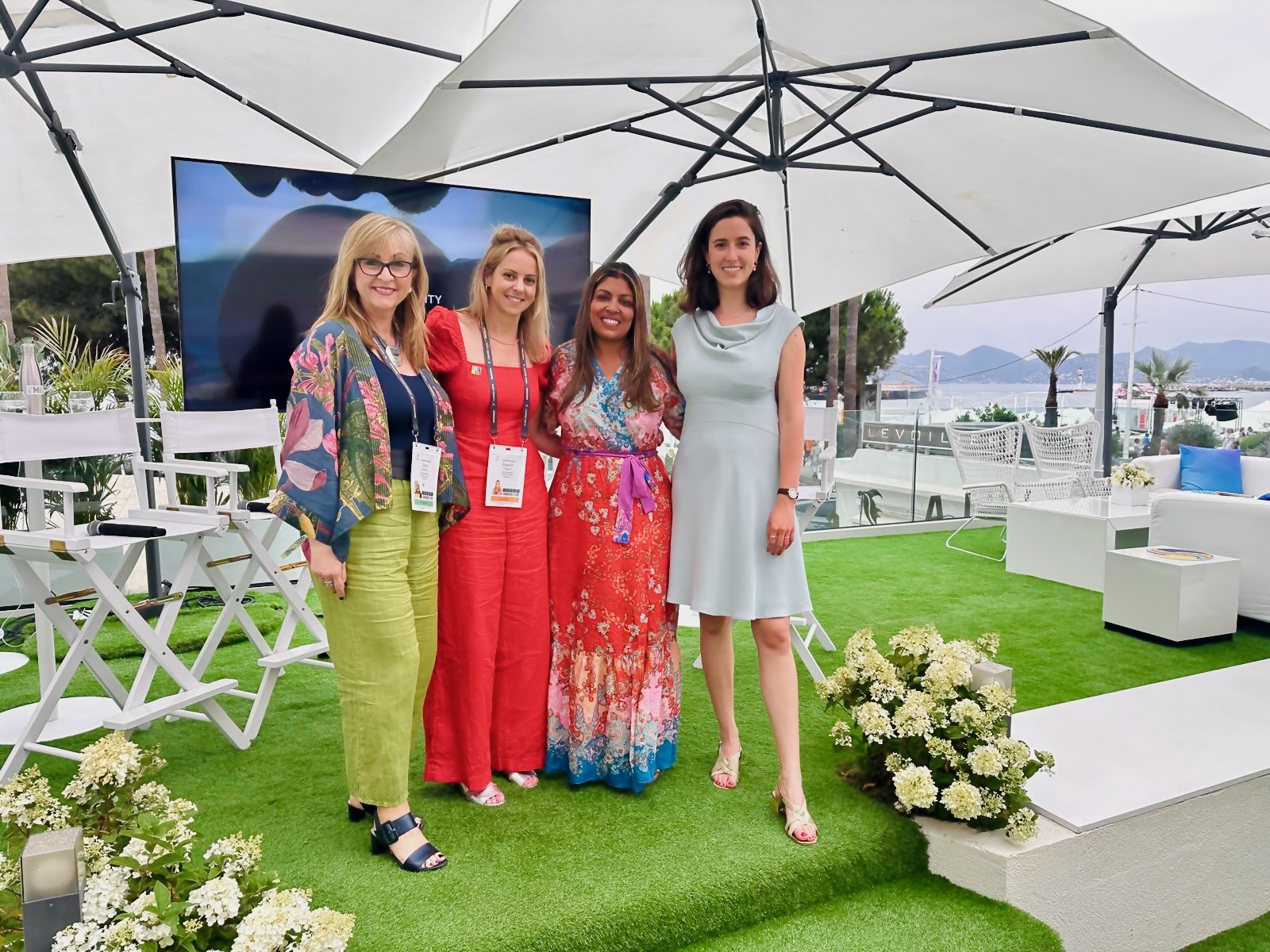Publish Date: Jul 16, 2024
As the advertising world gathered in Cannes in June 2024, the Unstereotype Alliance presented throughout the week at the industry’s largest global gathering. Celebrating its 7th anniversary at the Cannes Lions International Festival of Creativity, the Alliance launched the initial findings of an industry-first report and hosted a record number of sessions on topics of critical importance to using advertising as a force for good.
Members and allies of the Alliance leveraged the global stage to provide crucial thought-leadership, highlight new research insights, and opportunities to progress our shared mandate, including:
Initial findings of the Business Case for Progressive Advertising, launched on the festival’s main stage. New data proved that Inclusion = Income and the findings resonated far beyond the festival.
- Three open sessions packed with nuggets of wisdom for brands and agencies on:
- Tackling ageism, the -ism that will impact us all and yet is causing the industry to haemorrhage talent and brands to lose money
- Creating a more progressive advertising industry that sheds monolithic masculinities in favour of diverse masculinities that enable social change
Minimizing the risk that GenAI will perpetuate or even worsen stereotypes – but with the right protocols, it can work as an invaluable tool for inclusion.
- Tackling ageism, the -ism that will impact us all and yet is causing the industry to haemorrhage talent and brands to lose money
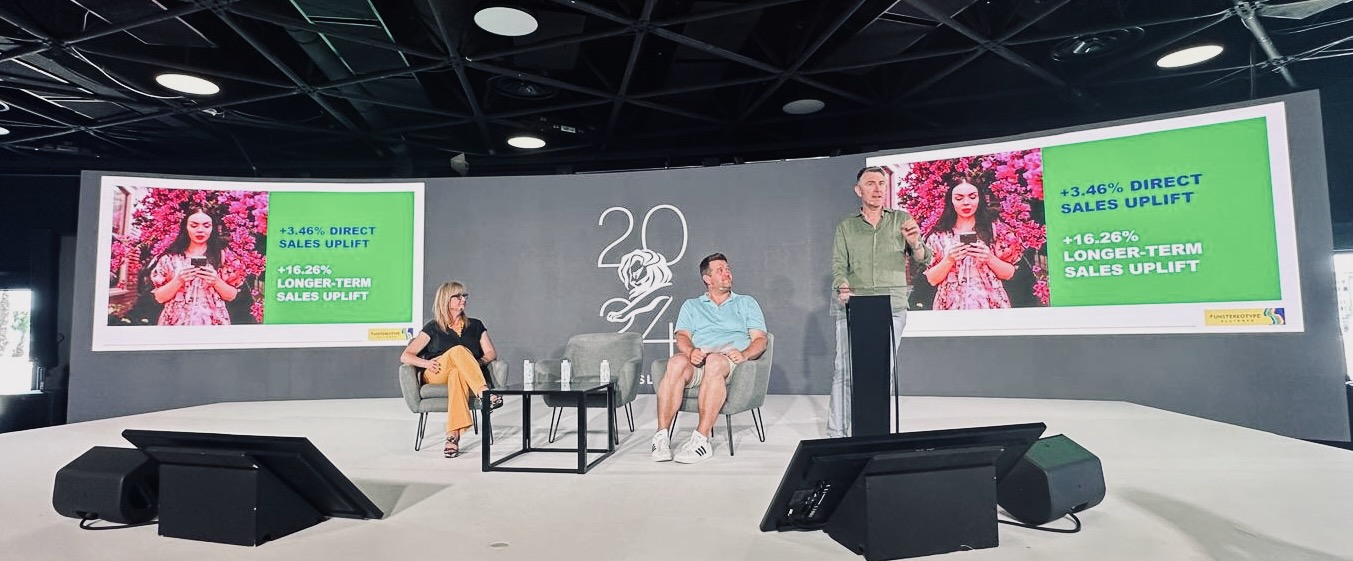
Read on for a deep dive into the themes and our sessions.
We must protect Diversity, Equity & Inclusion initiatives - for society and business
In recent years there have been several high profile cases of backlash against progressive content in ads. Coupled with that, a growing rhetoric in the media has suggested that DEI poses a risk to organisations. Risk, perceived or actual, to a brand’s reputation and thus income can act as a deterrent to progressive content, at a time when it is more necessary than ever. Across the industry that produces the work, in addition to ongoing gender bias, there are significant shortfalls in the inclusion of non-binary people, people living with disabilities, members of the LGBTIQ+ community, and older adults working in the advertising industry (State of Industry Report 2023). This lack of inclusion can be a barrier to achieving truly progressive representation in advertising content, and can perpetuate stereotypes.
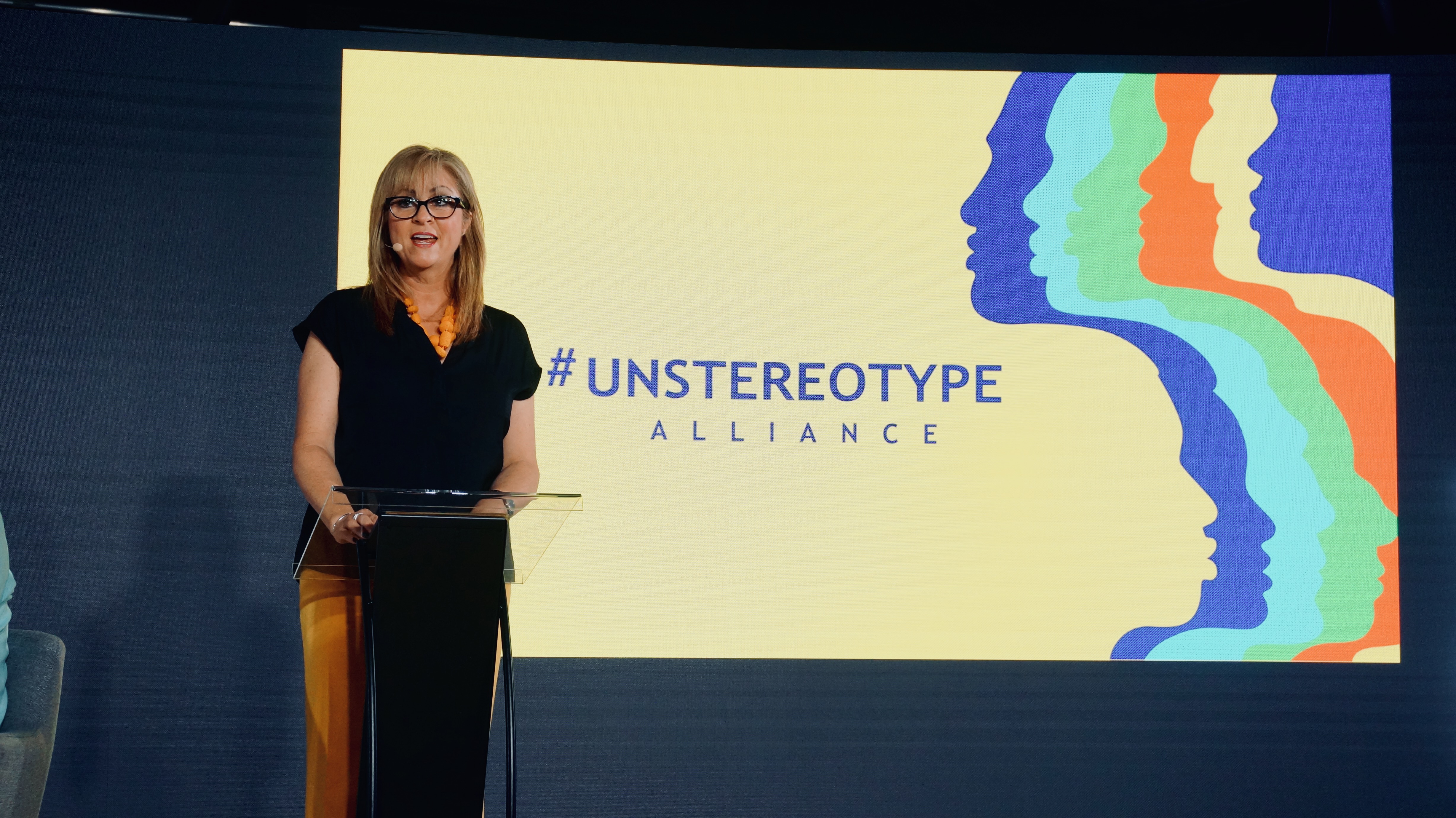
The Unstereotype Alliance took to the Rotonde stage to announce initial findings from ‘The Business Case for Progressive Advertising’. Sara Denby, Head of the Unstereotype Alliance Secretariat at UN Women, was joined by Jon Halvorson, Global SVP, Consumer Experience at Mondelēz International and
Professor Andrew Stephen, Deputy Dean for Faculty and Research, and L’Oréal Professor of Marketing at the Saïd Business School, University of Oxford to share data that unequivocally proves inclusive marketing equals income.
The headline findings of the study from the Unstereotype Alliance together with University of Oxford’s Saïd Business School provide evidence that:
1 ) Progressive advertising drives significant sale impacts: +3.46% in direct sales uplift and +16.26% in longer term sales uplift.
2 ) Brand Equity is improved by progressive advertising: Brands that score highly on progressive advertising indicators are 9.8% more ‘meaningful’
and 11.8% more ‘different’.
3 ) Progressive advertising can future-proof growth. As a vital element of corporate strategy, progressive advertising strengthens the value of brand assets, paying off with higher customer value and sales performance.
With sales data from five of the world’s largest advertisers and Unstereotype Alliance members (Bayer Consumer Health, Diageo, Mars Inc, Mondelez International and Unilever) as well as supporting data from Kantar, Nielsen IQ and the Geena Davis Institute, the initial findings can be accessed here and the full study will be published in September this year.
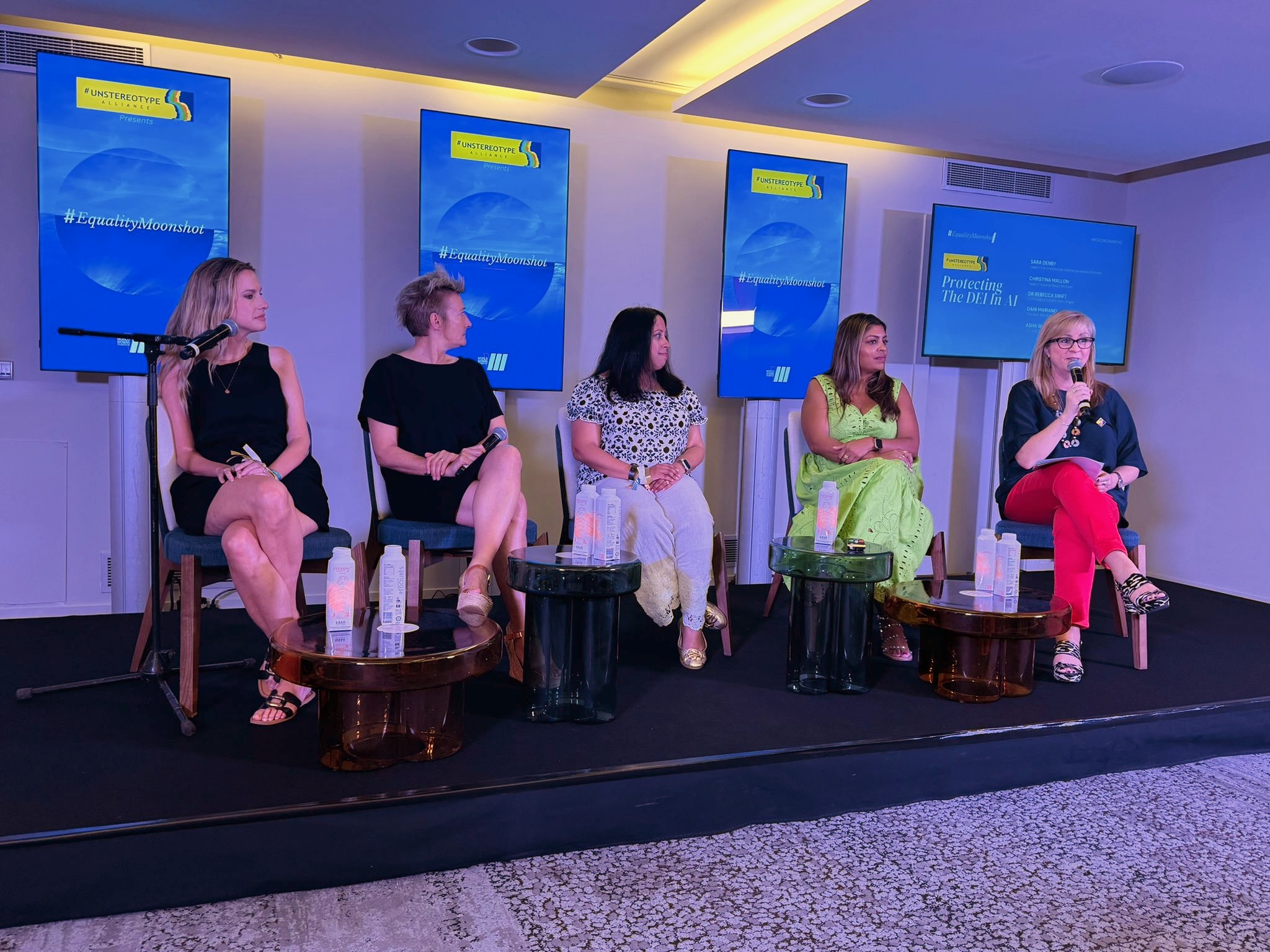
AI, particularly Generative AI, is rapidly gaining interest and adoption across the ad industry. GenAI can risk perpetuating or even worsening stereotypes but with the right protocols, it can be an invaluable tool to assess and evaluate levels of inclusion.. We brought together AI and DEI experts to delve into what brands and agencies can do to ensure they protect the DEI in their use of AI. Sara Denby hosted the panel discussion at the World Women Foundation’s venue.
You can watch the session here >and listen to some of the key takeaways from the experts:
“GenAI is a tool not a strategy. We need diverse voices in the room around implementation and monitoring.” - Tina Biswas, Group Vice President, Razorfish
“AI will affect every single job ever. Not educating yourself on how to use AI will be a pitfall. Understanding AI allows for co-designing input data ensuring better representation.”
- Christina Mallon, Head of Inclusive Design, Microsoft
“AI is enabling us to measure at scale - let that data lead you to being a more inclusive brand”- Asha Shivaji, Co-founder and CEO, SeeMe Index
“GenAI will be part of our industry so we need create a model where we ensure the input is good - to protect the people that create it and sustain our community”- Dr. Rebecca Swift, SVP Creative, Getty Images
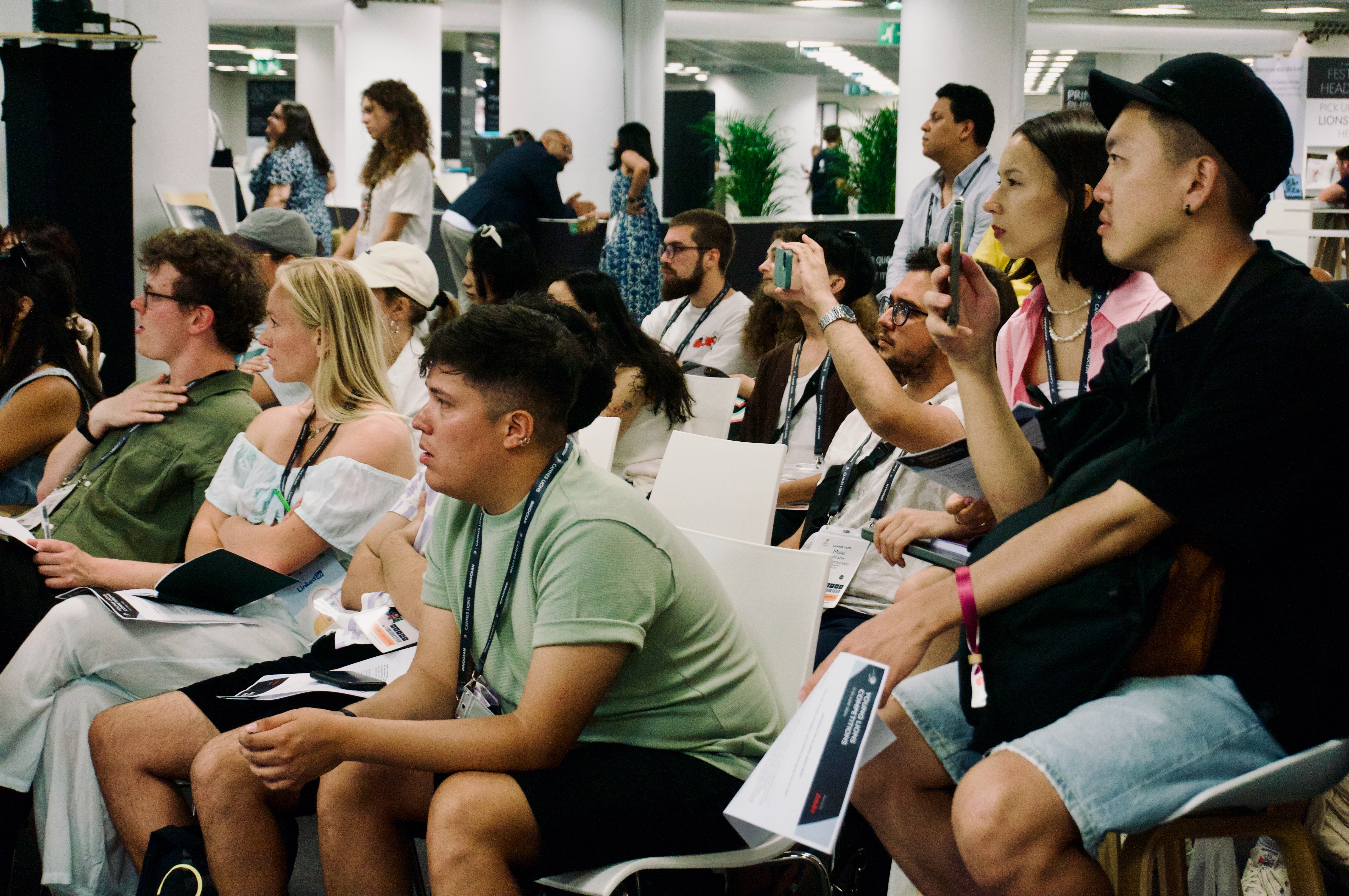
The criticality of healthy masculinities and engaging the next generation of marketers and creatives
The week got off to an invigorating start with the first of three Unstereotype Alliance briefs delivered to the Young Lions Competition of 2024. Each brief had at its heart the mission to help reshape the monolithic portrayals of men and masculinities in advertising content to promote more varied and healthy depictions of masculinities.
The briefs underscored insights including a concerning downward trajectory of young men’s mental health, a lack of diversity in portrayals of men in ad content, and a growth in predatory male influencers capitalising on the insecurities of vulnerable young men.
Research from New Macho at BDD Perfect Storm shows that 66% of Millennial men say advertising and the media is ‘likely or very likely’ to have a negative impact on how successful they feel. Recent IPSOS research found that more young men believe feminism is harmful, compared to young women and older men. It is against this backdrop of a generation divided, that we joined forces with Fernando Desouches (Managing Director, New Macho at BBD Perfect Storm), Rachel Lowenstein (Global Head of Inclusive innovation, Mindshare), Dr Rebecca Swift (VP, Global Head of Creative Insights, Getty Images), Michelle Terry (CEO, Movember), and John Williams (Global Director, Beer, Scotch, Diageo), and to ask ‘Are we leaving men and boys behind?’
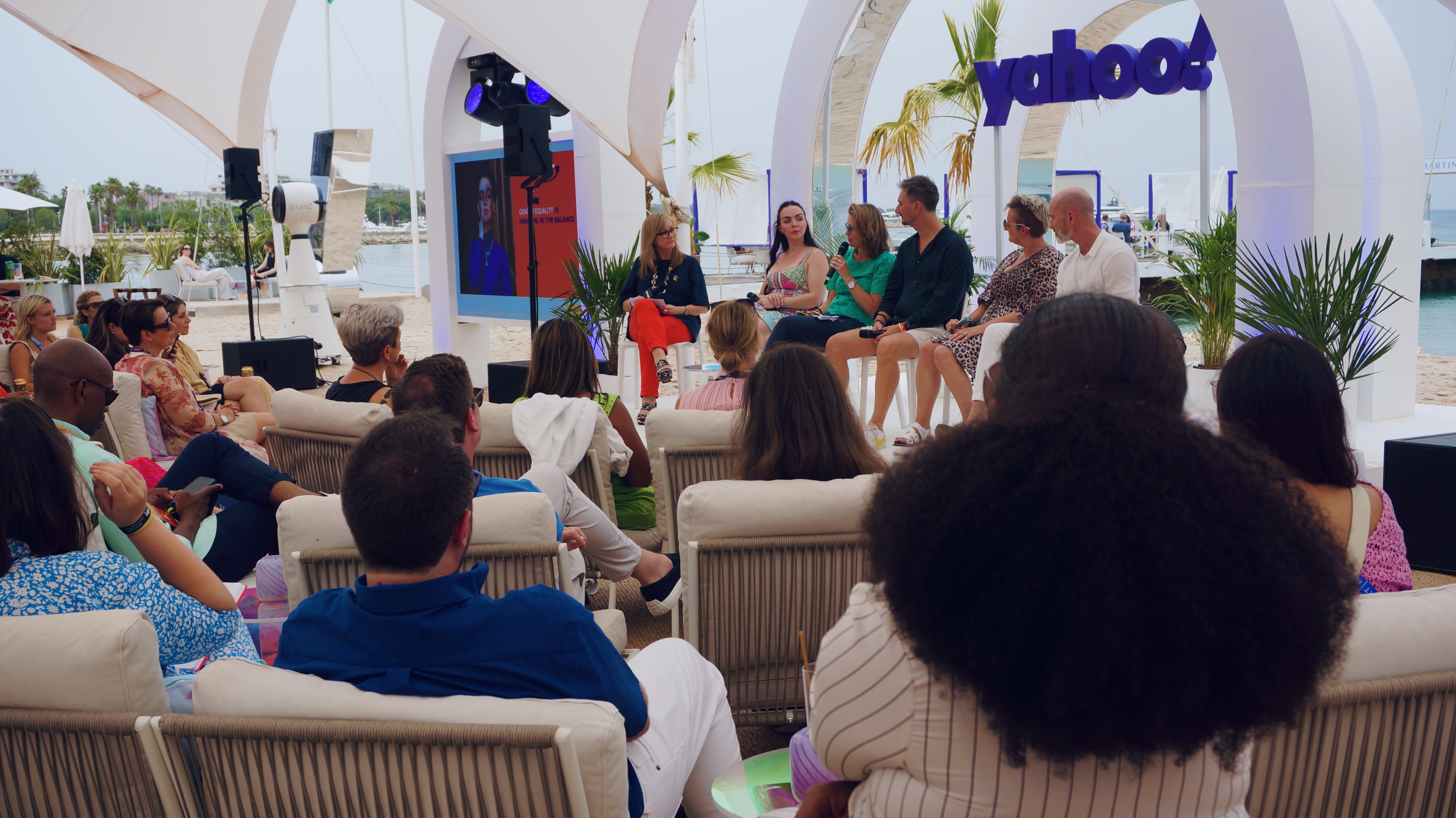
The huge crowd gathered at the Yahoo Beach for the session that reiterated how pressing addressing monolithic masculinities is for the industry. Panellists covered a range of topics including young men’s regressive attitudes towards gender equality and the pervasive nature of the manosphere, the state of young men’s mental health, depictions of masculinity and ‘success’ in visual narratives, and how brands can successfully drive both progress and impact in this space.
Unstereotyping ageism – in the industry and the work
Ageism is the ‘ism’ that affects us all, but the ad industry is not only haemorrhaging invaluable experience due to a fabricated ‘Best Before’ expiration date for talent, but it is alienating a huge consumer base as a result. When we examine ageism through the lens of race and ethnicity, it’s another frontier in the battle for representation.
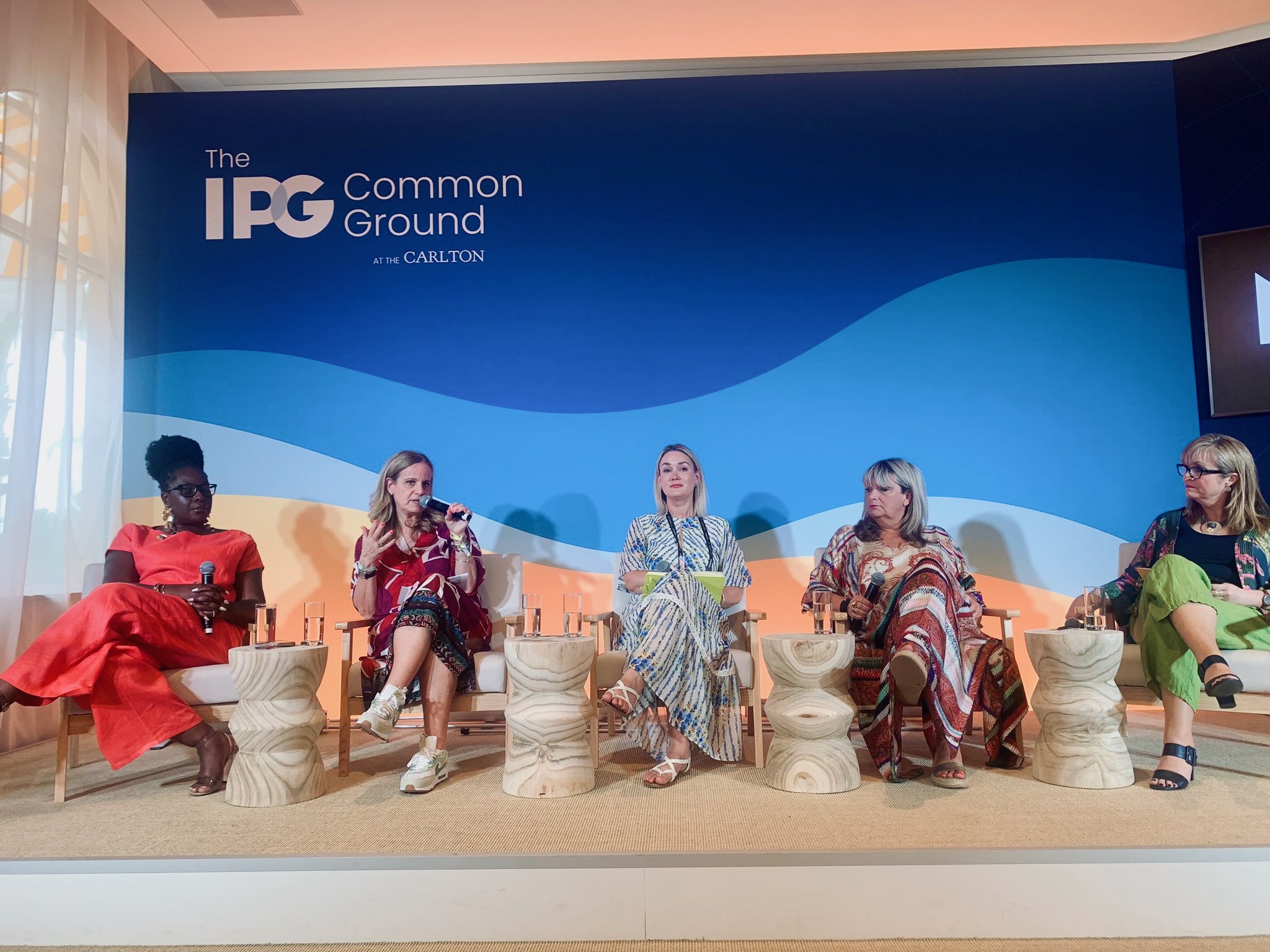
Against this backdrop, Sara Denby moderated a discussion titled ‘outrAGE: Addressing Ageism in Advertising’, which explored how we can all play a part to redress the imbalances of age, and highlighted the huge opportunities that should be embraced.
The panel shared powerful learnings from this lucrative and growing demographic, and industry insight on how we must address this lack of representation, with Creative Equals’ ‘Creative Comeback’ program cited as one example of a way to reintegrate lapsed creative talent back into the industry. Some key takeaways to silence the skeptics and power forward included:
“60% of successful startups have someone over 55 working for them”. - Jackie Cooper, Chief Brand Officer, Edelman
“CV gaps are creativity’s gift. Be the agency that embraces age as a creative superpower.” - Claire McHardy, Inclusion Director, Creative Equals.
Aba Blankson, Chief Marketing Officer of theNAACP, reinforced that an intersectional approach to the representation of age is critical and urged that audience to not “celebrate the youth of older people, rather the real experience of being old”.
“The best way to get agencies to change? Have clients say: 'if you don't, I'm going somewhere else’. Change comes from where the money comes from.”
- Nicky Bullard, Group Chief Creative Officer, MullenLowe Group UK
Driving collective impact as a global movement
Every year at Cannes we bring together the Unstereotype Alliance members and allies for insights, inspiration, and a chance to meet like-minded industry trailblazers. This year’s session was opened by Lynn Lewis, CMO of our hosts Mediabrands, who stated the importance of maintaining progressive and responsible advertising.
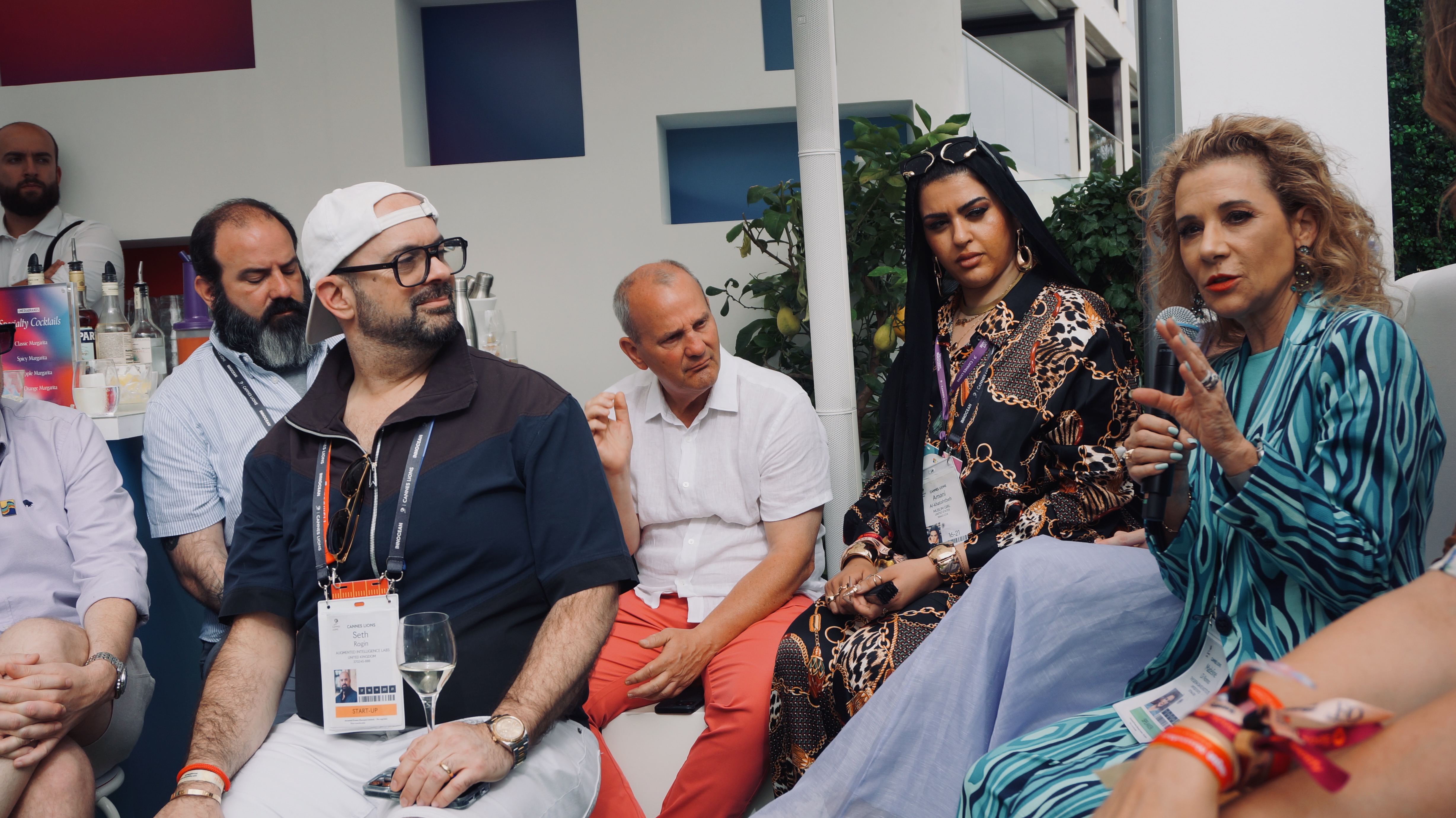
Members and allies contributed to a group conversation drawing on key key themes and activations that are currently a focus across the Alliance,and all were united in pushing for even greater collective efforts. Jess Weiner, Cultural Expert and CEO of Talk to Jess, engaged Deputy Vice Chairs of the Unstereotype Alliance, Esi Eggleston Bracey, Chief Growth and Marketing Officer at Unilever, and Mitch Oliver, Global VP of Brands and Purpose at Mars Inc, in a rousing discussion on the importance of maintaining DEI efforts, and the now proven business imperatives of adopting an unstereotyped approach to advertising.
The conversations, feedback and insights shared were a testament to the collective impact of the Alliance. As the Unstereotype Alliance enters its 8th year, our 240+ members and 12 National Chapters continue to advocate for a data-driven evidence base for progressive advertising, commit to upskilling their organisations, co-creating tools and best-practice across the membership and industry at large, in order to use advertising as a force for changing norms and driving positive social change.
The Unstereotype Alliance team at Cannes Lions 2024:
